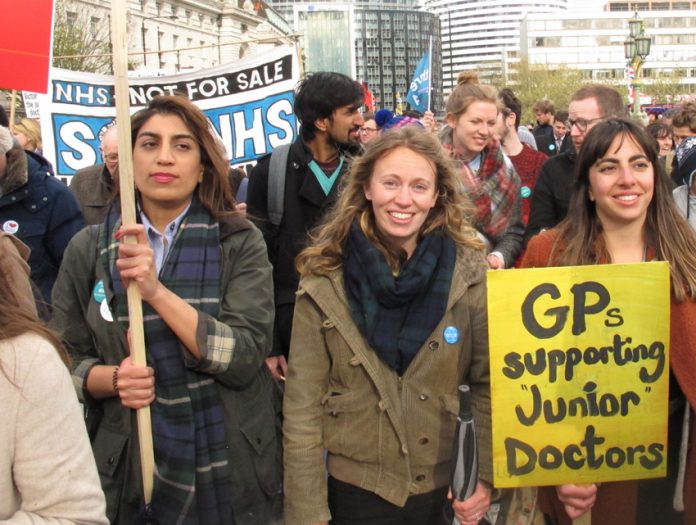
‘GENERAL Practice is cracking,’ Dr Richard Vautrey, GP committee UK chair, told the BMA Annual Representative Meeting in Brighton yesterday, highlighting the closure of hundreds of GP surgeries, leaving millions of patients forced to travel miles to try and register with another practice.
Doctors passed motions calling for action to tackle the growing crisis facing GPs, both in terms of workload, and the amount of time allocated to each patient. Motion 65 from Wales was passed, calling for a ‘sensible cap on the workload of a GP which can be expected to be safely delivered in a day for the safety of patients and sanity of GPs.’
Speakers in the debate pointed out that in Sweden GPs only see 25 patients a day and allocate them up to half an hour each, whereas in the UK GPs may see up to 60 patients a day for just ten minutes each.
Motion 66 (conference of LMCs) ‘recognised the right and responsibility of GPs to refer patients for specialist opinion’, and criticised referral management systems which interfere with this. It believed that these were an ‘unacceptable barrier to patients accessing appropriate secondary care’, and demanded ‘legal confirmation that the clinical responsibility will rest with the individual making the decision that a referral may not proceed.’
In other words, if a patient develops a serious condition or, for that matter, cancer, as a result of not being referred to hospital, they are demanding confirmation that GPs will not be legally responsible. These referral management systems are constantly used to block GPs referring patients to consultants.
It ended by calling for ‘GPs as skilled generalists to continue acting with professional autonomy.’ In the next section, the Welsh Council put forward a very important motion proposing safe staffing levels for doctors: ‘Following the enactment of the Nurse Staffing Levels (Wales) ACT 2016, and with particular regard to-out-of-hours staffing of hospital cover,’ this conference ‘calls on the Welsh Government to take appropriate steps to agree to similarly introduce an agreed safe minimal level of doctor cover to ensure the safety of patients that hospitals must provide.’
Anna Athow, BMA member, said: ‘Jeremy Hunt has refused Safe Staffing Levels legislation for doctors and nurses in England. Doctors and nurses in England require the same Safe Staffing Levels legislation as in Wales.’
Dr Vautrey said: ‘When instead of gaining an additional 5,000 GPs, we’ve lost over a 1,000, we know that the foundation of general practice is cracking. When over a 1,000 GPs have referred themselves to the new GP Health Service in England because of stress and mental health problems, or when hundreds of practices have closed and over a million patients have been forced to look for a new GP service, we know that the foundation of general practice is breaking down.
‘We need to invest properly in premises, to reduce the risks for those potentially left last-person-standing and prevent bodies like NHS Property Services from pushing practices to the point of closure by their unacceptable and unjustified cost hikes.’